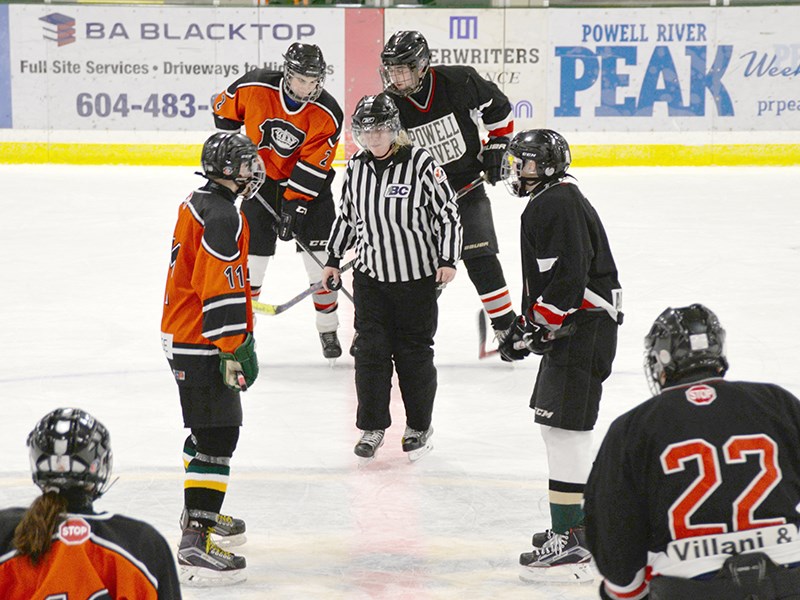All parents or guardians with children registered in Powell River Minor Hockey Association must complete certification for BC Amateur Hockey Association’s Respect in Sport Program, or their children will not be allowed to play, period.
Of the 215 local players registered for the 2017/2018 season, only six parents did not meet the deadline, which passed on October 31, according to minor hockey association president Mike Mastrodonato.
“The player will be eligible as soon as the parent completes Respect in Sport,” said Mike.
The sports program was adopted to counter “rink rage,” according to minor hockey director-at-large Rick Hopper.
“They mandated it so your child would be pulled off the ice if you have not taken the program,” said Hopper.
Since Respect in Sport was introduced, incidents are not as common, according to Mike.
“It's really frowned upon, it's dealt with very quickly and it never really develops in a game,” he said.
If a parent is persistent in being verbal or, in rare cases, physically abusive, the referee will remove the parent from the arena, according to Mike, who is also a referee. If the situation persists, the referee will stop the game, he said.
“It has happened that they've emptied the arena,” he said. “Not in Powell River, but in Ontario and Vancouver they actually had all of the parents leave and finished the game with no parents in the stands.”
Young referees bare the brunt of abuse on the ice, according to minor hockey referee coordinator Jodi Mastrodonato.
Youth are eligible to referee beginning at age 12 or 13, said Jodi. The minor hockey association sometimes finds it difficult to keep them due to the pressure they face, she added.
“Kids get turned off when coaches and parents are hard on them when they’re just learning,” she said. “We have a mentoring program in place where we try to have an adult out there with kids now.”
Hopper coached in the BC Junior Hockey League, including two seasons with the Powell River Paper Kings from 1988 to 1990, and also coached in the Western Hockey League. Coaches and officials are also required to take a course, he said.
Hopper said a parent who is prone to subjecting referees, opposing players, coaches and other parents to verbal and sometimes physical abuse is not going to change their behaviour as a result of taking the online Respect in Sport course.
“I get why they want to do a program like this,” said Hopper, “but there are some people who just allow their emotions to get the best of them and hockey is one of the sports that always gets highlighted when something happens.
According to Jodi, there is still the odd rink-raging fan, but it usually happens in larger hockey associations.
“We see it more in a tournament when we host out-of-town teams from bigger associations,” she said.
When Powell River hosted the Bantam Tier 2 Provincial Championships in March, an incident involving parents of a visiting team took place, she added.
Misbehaving parents who give into emotions are especially hard on young players, according to Hopper.
“It's unfortunate that people allow their behaviour to get to the point where it no longer makes sense, has no bearing on children’s sports and just gets completely out of hand,” said Hopper. “People do things in hockey that they just wouldn't do in regular life.”



